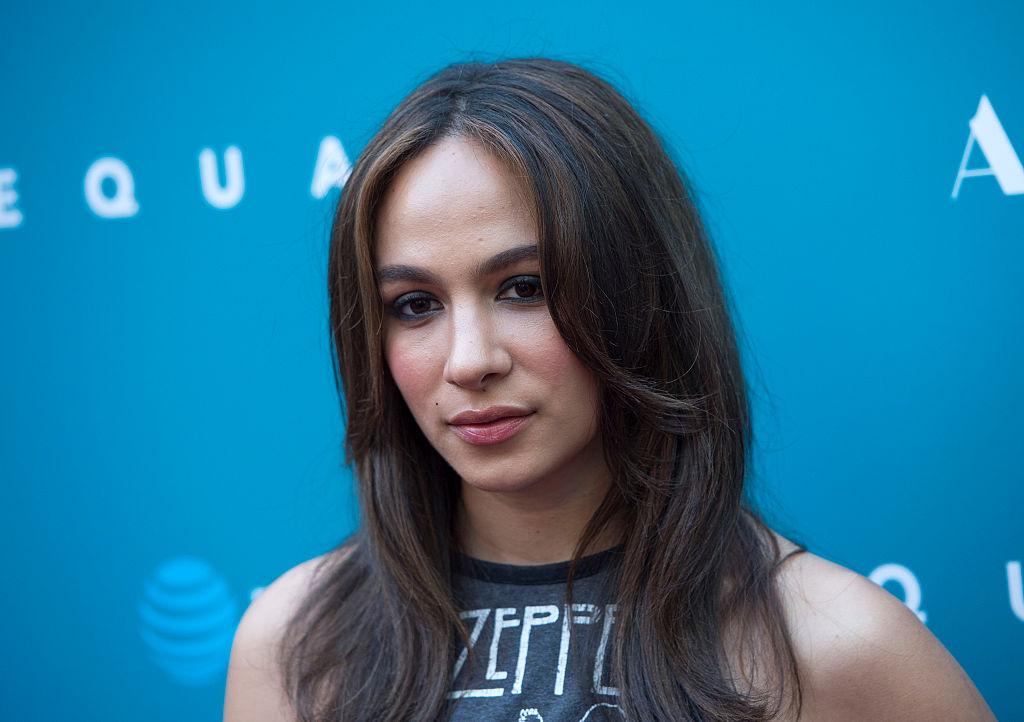Lena Dunham has failed women of colour by discrediting Aurora Perrineau’s rape allegations
Dunham has repeatedly said that women alleging rape must be believed, but it seems that doesn’t apply when women of colour accuse white men she’s friends with


Your support helps us to tell the story
From reproductive rights to climate change to Big Tech, The Independent is on the ground when the story is developing. Whether it's investigating the financials of Elon Musk's pro-Trump PAC or producing our latest documentary, 'The A Word', which shines a light on the American women fighting for reproductive rights, we know how important it is to parse out the facts from the messaging.
At such a critical moment in US history, we need reporters on the ground. Your donation allows us to keep sending journalists to speak to both sides of the story.
The Independent is trusted by Americans across the entire political spectrum. And unlike many other quality news outlets, we choose not to lock Americans out of our reporting and analysis with paywalls. We believe quality journalism should be available to everyone, paid for by those who can afford it.
Your support makes all the difference.The news that actress Aurora Perrineau has accused one of the writers of the HBO series Girls, Murray Miller, of raping her at the age of 17, has prompted a rather shocking response from Lena Dunham in defence of her friend and colleague: not the accuser, but the accused.
Dunham and her co-showrunner, Jenni Konner, have released a statement assigning Perrineau’s claim to the “3 per cent of assault cases that are misreported every year”. They prefaced their dismissal of Perrineau’s claims with a wholehearted endorsement of the cultural shift whereby “so many” women’s voices have finally been heard, explaining: “It’s a hugely important time of change and, like every feminist in Hollywood and beyond, we celebrate.”
But not all feminists are celebrating and not all women are being heard. Among what Dunham and Konner describe as a “windfall of deeply necessary accusations” are the maligned voices of women of colour.
Overwhelmingly, the non-white women who have made accusations of sexual assault are still being contradicted, pilloried and not believed. Of the dozens and dozens of victims who came out against Harvey Weinstein, Lupita Nyong’o was the only one of the 79 women who Weinstein took the time to deny the allegations of, saying that he remembered a “different version of events”.
Perrineau, a biracial actress, has to go through not only the denials of her accused assailant, but the public derision of prominent feminists. Women like Dunham who have so vehemently supported the exposure of sexual harassment in the media, change course when the victims of this culture are non-white. In keeping with a historical trend, this watershed moment for feminism has left certain women behind.
A number of intersectional feminists have noticed this problem. Jane Fonda explained that the reason Harvey Weinstein’s victims were believed is that they were generally white and famous, a truth that has resulted in the intensified oppression of women of colour for centuries.
Abusive men know that non-white women are less likely to be believed when they make accusations of sexual assault, so often actively target them.
Additionally, the various harmful stereotypes that women of colour have to constantly contend with make their stories of sexual assault much more difficult to tell. Black women are overtly sexualised, fetishised and objectified in the media. South Asian women are expected to be modest and demure, while Eastern Asian women are expected to be passive and submissive.
All of these damaging and limiting expectations make it so much harder for non-white women to talk about sexual assault and especially to publicly accuse men of sexual misdemeanours or rape, because any claim is seen through a distorting lens and unjustified aspersions about their own sexuality.
Women of colour are also expected to be grateful for sexual attention, with white men sometimes having the audacity to frame their sexual assault as open-mindedness – patting themselves on the back for being sexually involved with a person of colour.
The complicated layers of this mean that men are more likely to deny the accusations of women of colour, not only because they know these women won’t be believed by society at large, but also maybe because they can convince themselves that the crime they’ve committed isn’t a crime at all. They justify their violence on the basis that black women must want sex and that Asian women wouldn’t ask for it if they did.
When a figure such as Lena Dunham, seen as a beacon of female empowerment, takes the time to essentially accuse a young woman of colour of lying about her alleged experience with seemingly no evidence other than “insider knowledge” of Murray’s situation, it strikes a painful cord. Dunham has long faced criticisms due to not including women of colour in her TV show, and seeing her going out of her way to discredit Perrineau’s allegations betrays a worrying double standard given her previous assertions that rape isn't something women lie about. But it seems that doesn't apply when women of colour accuse white men she’s friends with.
The number of extra hurdles women of colour have to encounter when it comes to sexual assault mean that it’s no wonder so few report their traumas. With the stereotypes pushed onto them, with white feminism not being behind them, and with their accusers bedding into the safety of all these deeply awful conditions, the whole process often seems just too harrowing.
We must, therefore, not be deceived into thinking universal progress is being made. This is a watershed moment for white women, but for women of colour, the situation is as dire and dangerous as it always has been.
Join our commenting forum
Join thought-provoking conversations, follow other Independent readers and see their replies
Comments